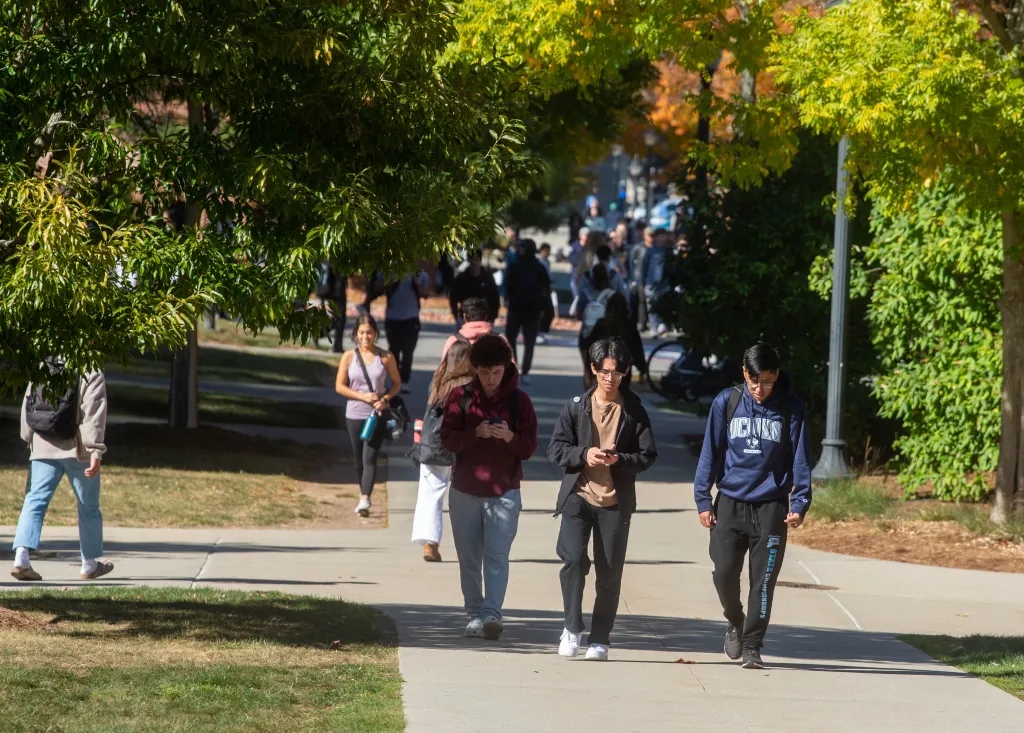
Just two years after UConn voted to make its Anti-Black Racism course a requirement for graduation as an opportunity “to confront the history and current reality of injustice and human rights abuses,” the university is reconsidering in light of federal guidance, university officials said.
“We are hopeful we will be able to offer the anti-Black racism course in the future, just not as a degree requirement as it was passed by the University Senate in 2023,” said Jamie Kleinman, chair of the Common Curriculum Committee. “We are working with relevant groups within the university to determine what the options for this would look like.”
The U.S. Department of Education this past February ordered schools and colleges that they eliminate diversity, equity and inclusion practices or risk losing federal funding.
The Feb. 14 memo known as the “Dear Colleague letter,” states that in recent years “American educational institutions have discriminated against students on the basis of race, including White and Asian students, many of whom come from disadvantaged backgrounds and low-income families.”
Even though the University Senate voted to make the course a degree requirement, Kleinman said the course was never offered as a requirement.
Robert Day, chair of the Senate Executive Committee, said the earliest the decision could have been implemented was this current Fall semester. However, he said the implementation did not take place, “partially in response to the legal advice.”
The course originated from two students who, during a virtual town hall in 2020, noted that the university put resources into creating a one-credit course related to the COVID-19 pandemic but had not “done something similar to address the other pandemic – anti-Black racism,” according to information regarding the course from the Provost’s office. The course was first offered in the fall of 2021.
The one-credit course uses “existing research to describe the foundational history and concepts related to systemic anti-Black racism in the United States,” according to the information on the course.
“This 1-credit course allows students to explore the topic of anti-Black racism in the United States, an important part of our history as a country,” Kleinman said. “We think this can be an important starting point for addressing some of the challenges and barriers that exist whether on a local or global scale.”
Day said, “my understanding is that students led the discussion: Having taken the course, and seeing it as a mostly online course that could be scaled, students thought that it would be good for all students to learn from the course content.”
The University Senate, after voting on the degree requirement, noted that coursework on racial justice was not just necessary but becoming more prevalent on top university campuses and would lead to further offerings. UConn has offered classes like “Why the Jews? Confronting Antisemitism” and “Confronting Anti-Asian Racism.”
“Based on our research of the top 30 public universities in the US—90% of whom are taking similar steps—we also believe that approving this proposal will provide a gateway for other courses about other groups whose historical exclusion and identity-based oppression is obvious in nationwide increases to anti-Asian racism, anti-Brown racism, antisemitism, islamophobia, and gender and sexuality-based harassment and violence,” the Senate said in a statement in 2023.
“Making the Anti-Black Racism course a requirement for every Husky undergraduate is not the final step, but it is the necessary next step in improving the living and learning experiences at UConn, and in enhancing the value of a UConn education,” the Senate said at the time.
Day said in an email that “no one is discussing adjusting courses.
“Course content is not in question,” he said. “It is only a question of what courses or collection of courses are required and how. It may be that the particular course continues as fulfilling a different more general requirement, as opposed to as a specific requirement for all students.”
Kleinman said she was unaware of any courses that are currently being reviewed for “adjustment based on federal guidelines.”



